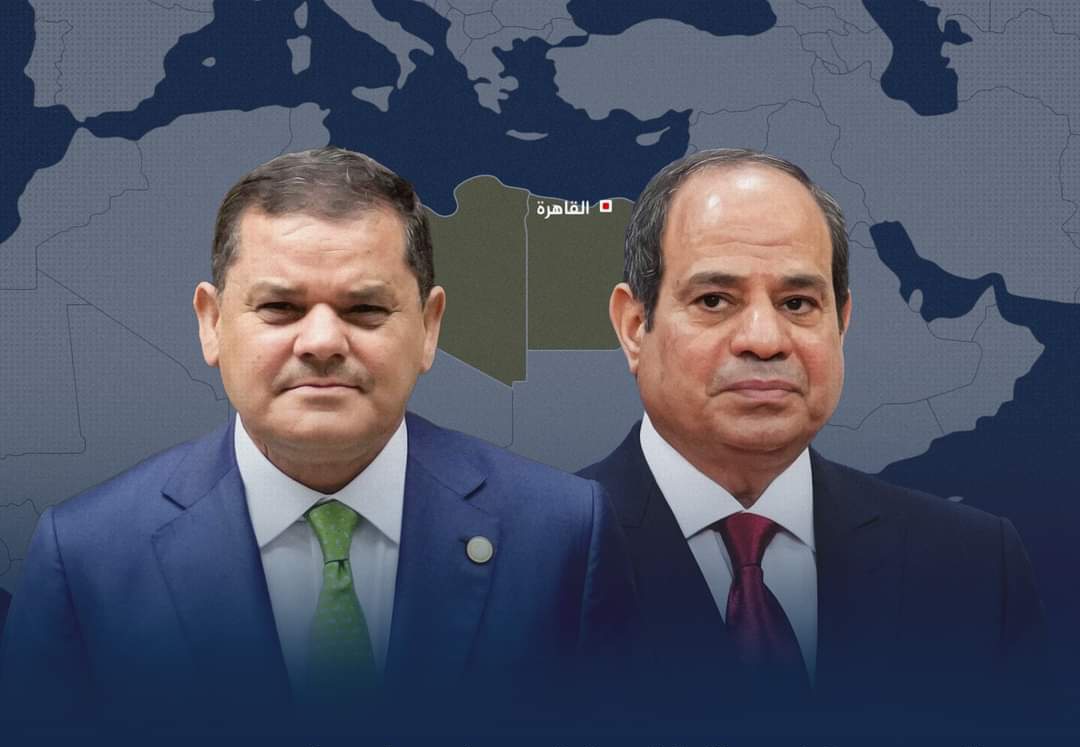Visit After Hiatus
After a three-year hiatus, Abdel Hamid Dbeibeh, the Prime Minister of the Government of National Unity, is preparing to visit Cairo in what may mark a turning point in his government’s relations with the Egyptian leadership. This visit comes as Dbeibeh participates in a regional migration conference, in his capacity as Minister of Foreign Affairs, at the invitation of the Arab League, the International Organization for Migration, and the United Nations Economic and Social Commission for Western Asia (ESCWA).
Migration Conference
The conference, titled “Second Regional Review of the Global Compact for Safe, Orderly and Regular Migration in the Arab Region,” will be held over two days in the Egyptian capital. It aims to assess progress in implementing the Global Compact for Migration in Arab countries.
Strained Relations
This visit is significant given the earlier tension in Dbeibeh’s relationship with Egypt, marked by disagreements over Egypt’s stance on the participation of certain Libyan parties in the political dialogue, including Cairo’s position on Dbeibeh’s role.
Egypt’s Role
Egypt, a key regional player in the Libyan file, supports the Presidential Council headed by Mohamed al-Menfi and the Speaker of the House of Representatives, Aguila Saleh. Recently, Cairo invited Mohamed Takala, the head of the High Council of State, to visit, as part of Egyptian efforts to stimulate dialogue among various Libyan factions.
Pressing Questions
This development raises several questions: Does Dbeibeh’s visit signal a change in Egypt’s stance towards his role in the Libyan political scene? Is it an attempt by Dbeibeh to draw closer to Cairo? And how will this visit affect the Libyan dialogue and efforts to achieve stability in the country?
Meeting with Sisi?
There is also speculation about the level of meetings Dbeibeh will have in Cairo. While his meetings with the conference organizers are confirmed, the key question remains: Will Dbeibeh meet with Egyptian President Abdel Fattah el-Sisi?
Implications of the Meeting
Such a meeting, if it occurs, would carry multiple implications. It could signal a fundamental shift in Egypt’s stance towards the Government of National Unity, providing Dbeibeh with additional legitimacy on the regional stage. It could also pave the way for a new phase of cooperation between Dbeibeh’s government and the Egyptian leadership.
Diverse Interpretations
Conversely, if no meeting occurs between Dbeibeh and Sisi despite the visit, it could be interpreted in various ways. It might be seen as a continuation of Egypt’s previous position on the Government of National Unity, or an indication that relations have not yet progressed to a level warranting such a meeting. It might also reflect Egypt’s continued cautious distance from Dbeibeh’s government, maintaining the status quo regarding his role in any future political dialogue.
Indicator of Relations
Therefore, whether the meeting happens or not, this point will be pivotal in evaluating the visit’s outcomes and its implications for the future of Dbeibeh-Egypt relations and Egypt’s role in the Libyan scene in general.
Transformation or Continuation?
In conclusion, Dbeibeh’s visit to Cairo presents an opportunity to reassess relations between the two sides and potentially open a new chapter. However, the central question remains: Will this visit be merely a protocol meeting, or will it mark the beginning of a transformation in the Libyan political landscape and regional relations?

